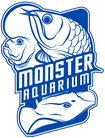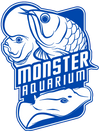Myleus schomburgkii (commonly known as the black-barred silver dollar) is a species of freshwater fish in the Serrasalmidae family, closely related to pacus and piranhas. It is a popular fish in the aquarium trade due to its striking appearance and active nature.
Basic Information:
• Scientific Name: Myleus schomburgkii
• Common Names: Black-barred silver dollar, Schomburgk’s silver dollar
• Family: Serrasalmidae
• Origin: Native to South America, specifically the Amazon and Orinoco River basins.
Appearance:
• Disc-shaped, laterally compressed body resembling a silver dollar, but larger.
• A distinct thick black vertical band runs across its body, sometimes accompanied by red or yellow hues near the fins.
• Some variations (such as Myleus schomburgkii ‘highback’) have a more pronounced dorsal hump.
Size:
• Can grow up to 10-12 inches (25-30 cm) in captivity, larger in the wild.
Behavior & Temperament:
• Schooling fish – prefers to be in groups of at least 5 or more.
• Generally peaceful, but may become fin-nippy if kept with slow-moving, long-finned fish.
• Active swimmers that need a large open space in the aquarium.
Tank Requirements:
• Tank Size: Minimum 125 gallons for a small group, larger is better.
• Water Parameters:
• Temperature: 75-82°F (24-28°C)
• pH: 5.5-7.5
• Hardness: Soft to moderately hard
• Filtration: Strong filtration and regular water changes are needed due to their high waste production.
• Aquascape: Best kept in a planted or semi-planted tank with driftwood and hiding spots, though they may nibble on softer plants.
Diet:
• Omnivorous, but leans heavily towards herbivory.
• Eats:
• Vegetables: Lettuce, spinach, zucchini, peas.
• Fruits: Apples, bananas.
• Pellets & Flakes: High-quality veggie-based foods.
• Occasional Protein: Bloodworms, shrimp, or insects in moderation.
Tank Mates:
• Best with other peaceful or semi-aggressive fish of similar size.
• Good tank mates:
• Larger tetras (e.g., Congo tetras)
• Other Silver Dollars
• Severums
• Geophagus species
• Arowanas (if tank size permits)
• Larger catfish (e.g., Plecos, Doradids)
• Avoid small fish (they may be eaten) and overly aggressive species like large cichlids.
Breeding:
• Rarely bred in home aquariums due to their large size and space requirements.
• Egg scatterers that require very specific water conditions to spawn.
Interesting Facts:
• Often mistaken for Metynnis species, which are smaller and more commonly sold as silver dollars.
• In the wild, they help disperse seeds by consuming fruits and plants.
• Fast swimmers that may jump if startled—tight-fitting lids are recommended.
| Size |
2.5-3", 1”-1.5” |
|---|





